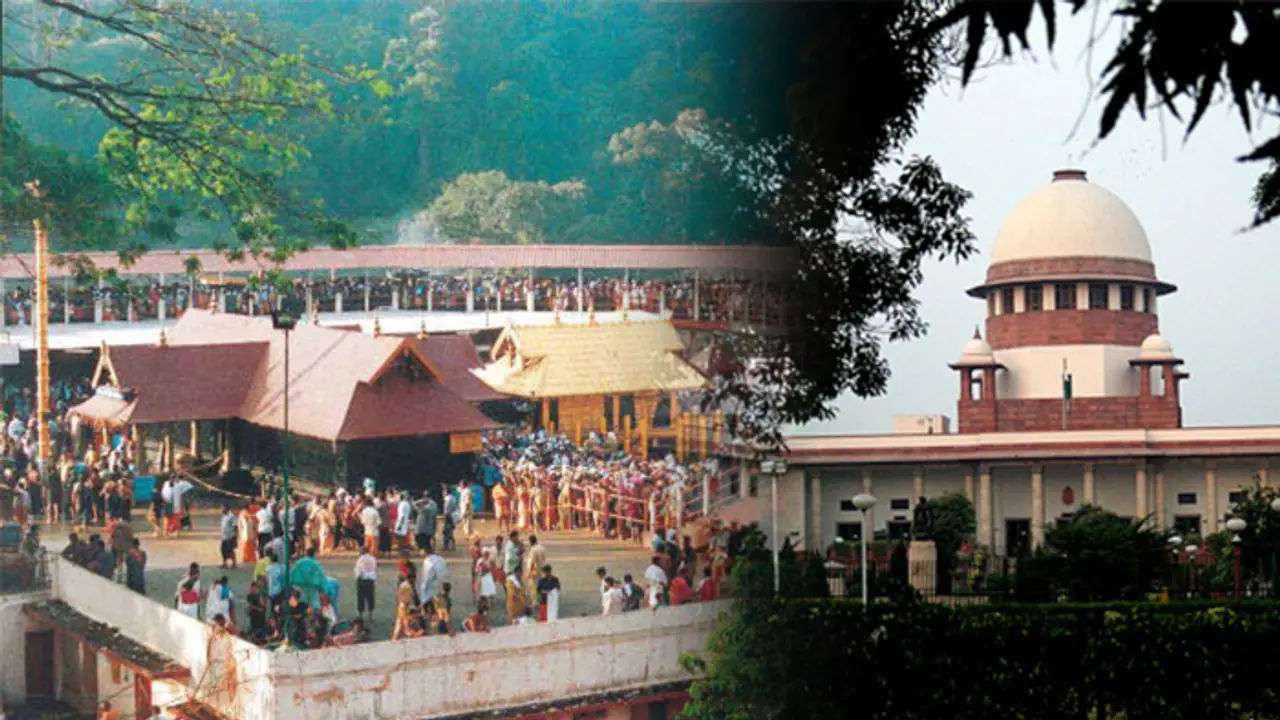Justice Chandrachud, in his separate but concurring verdict, has dealt with the birth of Lord Ayyappa, his life in a royal palace, the origin of the hill-top shrine, the distinct features of the pilgrimage including the deep penance, celibacy and abstinence to be undertaken by the devotees.
The Supreme Court verdict Friday, paving the way for entry of women to Kerala's Sabarimala temple, has extensively delved into the history of the mythological figure lord Ayyappa and the evolution of the hill-top shrine as also its strict "vratham" or penance undertaken before the pilgrimage.
Justice Chandrachud, in his separate but concurring verdict, has dealt with the birth of Lord Ayyappa, his life in a royal palace, the origin of the hill-top shrine, the distinct features of the pilgrimage including the deep penance, celibacy and abstinence to be undertaken by the devotees.
"Although there are numerous Ayyappa Temples in India, the Sabarimala Temple depicts Lord Ayyappa as a Naishtika Brahmacharya: his powers derive specifically from abstention from sexual activities," Justice Chandrachud noted.
He said the birth of Lord Ayyappa has been described as arising from the union of Lord Shiva and Lord Vishnu (in the form of Mohini). He also noted that the Pandalam King, Rajasekara, on a hunting trip found a child along the banks of river Pamba and took him home.
After the birth of a male child to the king, the minister to usurp power asked the queen to feign illness and demand the milk of a tigress for which child Ayyappa was sent to the forest.
According to the legend, he returned from the forest with a streak of tigers and the king as well as his subjects witnessed his divinity after which Ayyappa disappeared and a temple was constructed on Mount Sabari to worship him.
Ayyappa also explained how the Sabarimala pilgrimage shall be undertaken, emphasizing the importance of the penance or 'vratham' and what the devotees can attain by his darshan.
The 'vratham' or penance guidelines to be followed for the pilgrimage involved the following steps:
* Abstaining from physical relations with a spouse.
* Abstention from intoxicating drinks, smoking and tamasic food.
* Living in isolation from the rest of the family.
* Refraining from interacting with women in daily life including those in the family.
* Cooking one's own food.
* Maintaining hygiene including bathing twice a day before prayers.
* Wearing a black mundu (Cloth around the waist) and upper garments.
* Partaking of one meal a day.
* Walking barefoot.
